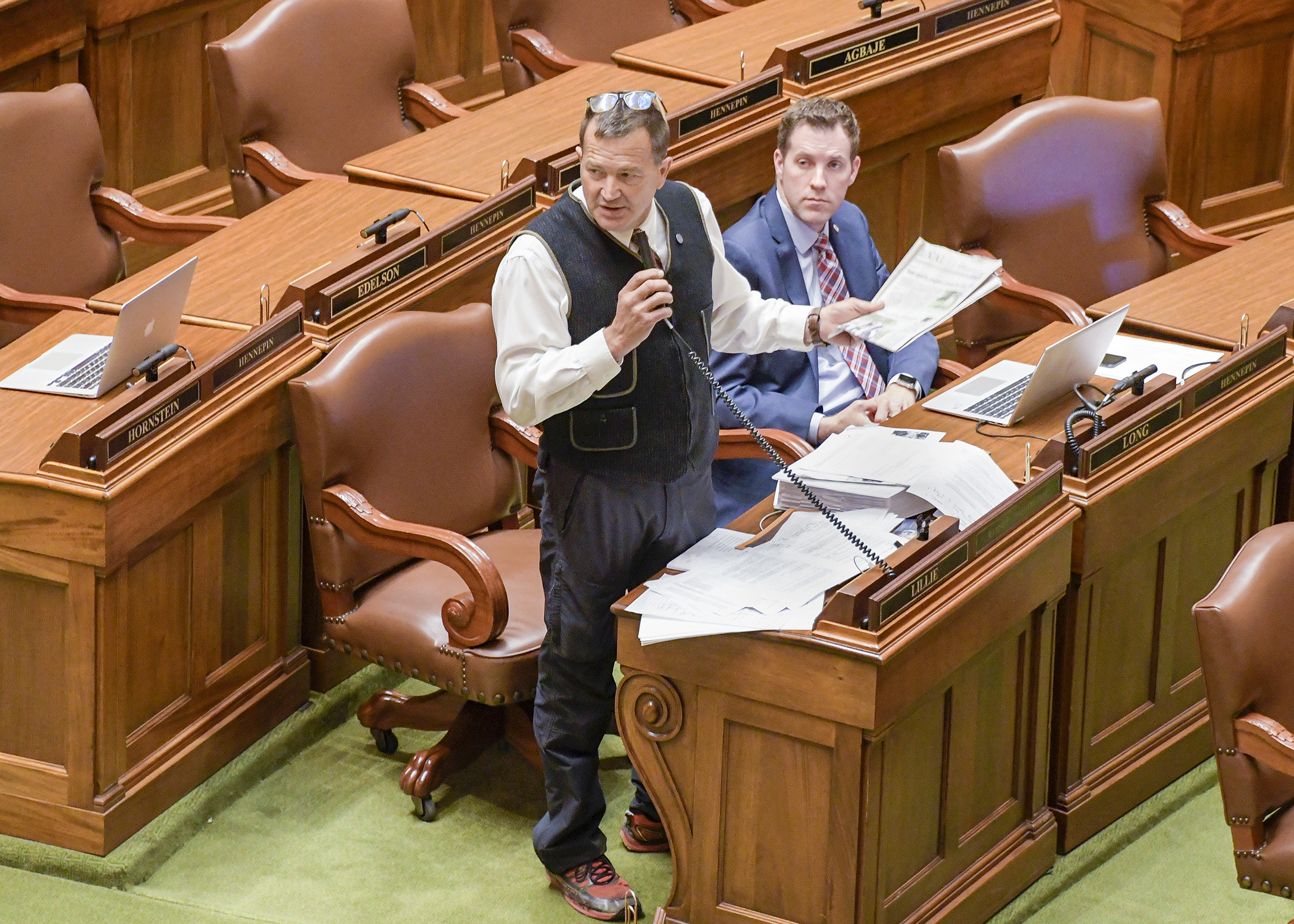At long last, Legacy: House passes first bill of special session

After three days of filibusters by House Republicans, a bill was finally passed by the House. But the first budget bill approved during the first special session of 2021 doesn’t really deal with the state budget. Not the General Fund anyway.
The omnibus legacy finance bill divvies up the proceeds from 0.375% of the state’s sales tax proceeds, directing the money toward projects related to clean water, the outdoors and the arts. It was created by a statewide referendum in 2008, and is a special pool of money all its own.
After being crafted by a House and Senate working group, the omnibus legacy bill passed 88-39 Saturday and is on its way to the Senate where Sen. Carrie Ruud (R-Breezy Point) is the sponsor. The bill was tabled Thursday on the Senate Floor.
Sponsored by Rep. Leon Lillie (DFL-North St. Paul), SSHF13 would allocate $382.5 million in fiscal year 2022 to four funds that promote clean water, prairies, forests, wetlands, parks, trails, the arts and cultural heritage. The total would be $645.6 million for the 2022-23 biennium.
“What’s in this bill makes us the envy of the country,” Lillie said. “A lot of these things would be left on the sidelines if we had a budget shortage. … These are great investments from one end of Minnesota to the other. Amazing projects, all over the state. This stuff is going on in every one of your districts.”
In the Legacy Finance Working Group’s final agreement, in fiscal year 2022, the four funds would receive:
- $127.8 million for the Outdoor Heritage Fund;
- $126.7 million for the Clean Water Fund;
- $73.1 million for the Arts and Cultural Heritage Fund; and
- $54.8 million for the Parks and Trails Fund.
[More: Bill details and view the spreadsheet]
Lillie touted the Outdoor Heritage Fund’s increased focus upon restoration and enhancement; the Clean Water Fund’s positive impact on agricultural economics; the Parks and Trails Fund’s role in dealing with a park popularity boom during COVID-19; and the Arts and Cultural Heritage Fund helping artists who had their projects shut down by the pandemic, as well as its increased focus upon cultural diversity and inclusion in projects.
Rep. Steve Green (R-Fosston) made a motion to re-refer the bill back to the House Legacy Finance Committee, saying it hadn’t been sufficiently vetted — a complaint registered by House Republicans about all four omnibus bills that have reached the floor — and eventually withdrew it, but not without objection.
“We shouldn’t have to decide that we’ll accept a bunch of bad stuff if we get a few things that we want,” Green said. “You can’t just keep throwing money at things and finding out later what they spent the money on.”
Four of five amendments were defeated, the other withdrawn. They proposed banning watershed districts from using eminent domain; eliminating “permanent” from all the bill’s language concerning conservation easements; and funding books from the Minnesota Historical Society and a documentary from public television about the governor’s emergency powers during the COVID-19 pandemic and the reinsurance program.
Related Articles
Search Session Daily
Advanced Search OptionsPriority Dailies
Speaker Emerita Melissa Hortman, husband killed in attack
By HPIS Staff House Speaker Emerita Melissa Hortman (DFL-Brooklyn Park) and her husband, Mark, were fatally shot in their home early Saturday morning.
Gov. Tim Walz announced the news dur...
House Speaker Emerita Melissa Hortman (DFL-Brooklyn Park) and her husband, Mark, were fatally shot in their home early Saturday morning.
Gov. Tim Walz announced the news dur...
Lawmakers deliver budget bills to governor's desk in one-day special session
By Mike Cook About that talk of needing all 21 hours left in a legislative day to complete a special session?
House members were more than up to the challenge Monday. Beginning at 10 a.m...
About that talk of needing all 21 hours left in a legislative day to complete a special session?
House members were more than up to the challenge Monday. Beginning at 10 a.m...